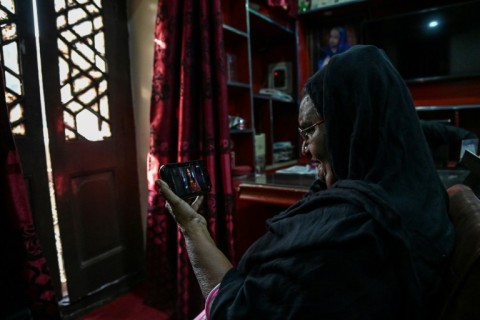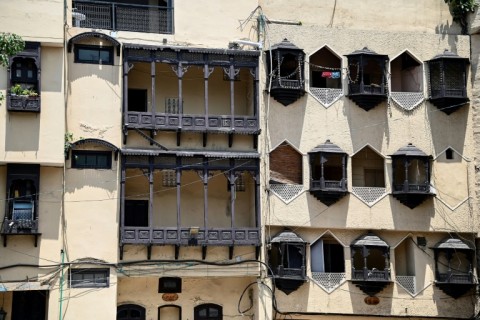LAHORE - The Netflix hit "Heeramandi" depicts the plush and powerful lives of courtesans in the 1940s, but there is little glamour for modern Pakistani sex workers in the faded red-light district where the series is set.
The eight-part show -- subtitled "The Diamond Bazaar" in English -- portrays courtesans in the "royal neighbourhood" of pre-partition Lahore, once a hub of culture and political intrigue.
With dazzling Bollywood-style opulence, it shows women consorting with aristocrats, forging influential alliances and rivalries against the backdrop of India's struggle for independence from British rule.
But in the derelict remains of the neighbourhood, 65-year-old former sex worker Shagufta scoffed.
"This is not what Heera Mandi is like," she told AFP, using a pseudonym to protect her identity.

"Now the girls just put their bodies on display," explained Shagufta. "There is nothing left in Heera Mandi."
Shagufta can trace back seven generations of women in her family who worked as "tawaifs" in Heera Mandi, and she began dancing and being prostituted at the age of 12.
While courtesans did command respect for their artistry in dance and music during the Mughal period, the show exaggerates the wealth and glamour of the British-ruled era in which it is set.
"It was never like this," she said.
The glittering jewels and swooning melodrama of the show attracted nearly 11 million views in its first three weeks on Netflix, as well as a deluge of interest on social media.
Fascination has been split across Pakistan and India, where TikTok has lit up with videos of influencers dressing in traditional costumes and lip-syncing to the show's songs and dialogues.

A sequence from a seductive classical dance inspired by the gait of an elephant -- considered regal and dignified -- has gone viral, with the dancer gracefully moving her hips from side to side.
Some vloggers have performed in front of shops selling shoes and musical instruments that have replaced the once-grand brothels, their crumbling art deco facades framing filthy alleyways.
But whether the show is breaking down barriers around sexuality in deeply conservative Pakistan or simply compounding them with titillation is up for debate.

